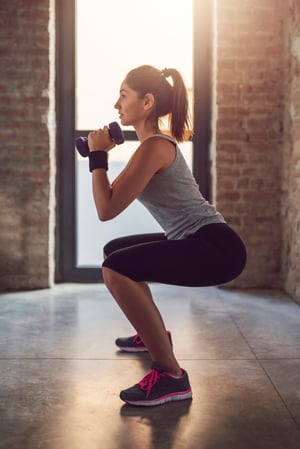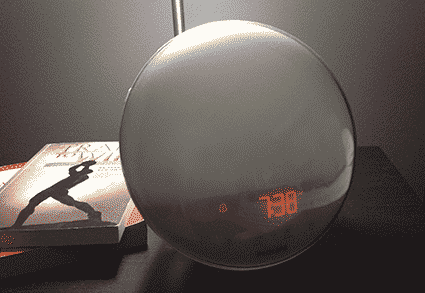 As the days grow shorter and temperatures drop, finding motivation to get to the gym can be tough. Between an increase in sickness, schedule changes, and chilly weather, it’s easy to lose your fitness rhythm. But sticking with your exercise routine during this time of year can actually help you feel better. Regular movement can boost your immunity, improve your mood, and increase your overall energy levels.
As the days grow shorter and temperatures drop, finding motivation to get to the gym can be tough. Between an increase in sickness, schedule changes, and chilly weather, it’s easy to lose your fitness rhythm. But sticking with your exercise routine during this time of year can actually help you feel better. Regular movement can boost your immunity, improve your mood, and increase your overall energy levels.
Boosted Immunity
As flu season starts to roll around, everyone starts to look for ways to stay healthy. What if I told you that getting into the gym can help? Exercising regularly can improve body functions and blood flow. This improvement helps the body’s ability to create immune cells to help fight infection. By increasing blood flow, you can also help get the immune cells moving around the body more efficiently, which leads to a more effective immune system.
Improved Mood
Shorter days and colder temperatures are often accompanied by a drop in motivation and mood. This change is commonly referred to as Seasonal Affective Disorder (SAD). Regular exercise can help combat these winter blues by boosting the body’s natural feel-good chemicals. Physical activity releases endorphins, sometimes called the “hope molecule,” which play a big role in improving mood and reducing stress. Even a short walk or light workout can help lift your spirits and make the darker months feel a little brighter.
Increased Energy
Exposure to the sun can help increase energy within the body through multiple mechanisms, but due to shorter days and colder weather, it can be difficult to find time outside. By staying active, you can help fight this drop in energy. Regular physical activity can increase the efficiency of the heart and lungs, which helps the body deliver oxygen and nutrients to its cells, leading to more efficient energy expenditure overall. On a cellular level, physical activity can also be associated with an increase in mitochondria, which leads to more energy production.
.jpg?width=254&height=169&name=GettyImages-1053000236%20(1).jpg) Tips for Staying Active
Tips for Staying Active
Finding the motivation to stay active as the seasons change can be difficult, so here are a few tips to help keep you moving:
Set Goals
It’s hard to find motivation to do anything if you don’t know where to start. It’s easier to keep going when you know you’re working on something. By setting goals, you give yourself a target and direction for your fitness journey which can help improve motivation and consistency. When creating your goals, use the S.M.A.R.T. method.
-
S = Specific: Define exactly what you want to achieve.
-
M = Measurable: Track your progress so you can see how far you’ve come.
-
A = Achievable: Keep goals realistic to avoid burnout or frustration.
-
R = Relevant: Make sure your goals align with your personal fitness priorities.
-
T = Time-bound: Give yourself a deadline to stay accountable and consistent.
Start small to help you gain momentum. Then, as you progress, your goals can progress as well. If you are struggling to set goals, ask a Health Fitness Specialist about scheduling a Strategy Session to help get you started.
Create a Plan
By creating a structured schedule and workout plan, you can remove some of the stress of staying active. Planning your workouts and schedule can create a routine to ensure you stay active. Whether that plan includes a full, 60-minute workout, or just something as basic as walking on the treadmill, a plan will help you stay consistent with your physical activity. If you struggle with creating your own plan, speak to a Health Fitness Specialist here at NIFS about an Exercise Prescription or Personal Training.
Find a Workout Buddy
When working out alone, it’s easy to convince yourself that you can skip the gym. Having a workout partner can create some accountability to help motivate you to stay consistent. Try to find someone with similar goals that you enjoy being around and helping each other stay active as winter approaches. If you can’t find someone to work out with, try joining a fitness class. Here at NIFS we offer a wide variety of classes to all members for free. Ask a Health Fitness Specialist about our Class Schedule and how to sign up.
Although it can be a challenge to stay active as the weather changes, your body and mind will thank you for keeping up the effort. By setting goals, creating a plan, and surrounding yourself with support, you can build consistency that carries you through every season.


 As university life picks up speed, maintaining a balanced diet can often fall by the wayside. Between classes, study sessions, and social activities, it’s easy to grab whatever is convenient. However, good nutrition is essential not only for keeping your energy levels up but also for enhancing your academic performance, supporting mental focus, and maintaining overall health. Here are some practical tips on stocking your dorm or apartment with nutritious, affordable, and convenient foods.
As university life picks up speed, maintaining a balanced diet can often fall by the wayside. Between classes, study sessions, and social activities, it’s easy to grab whatever is convenient. However, good nutrition is essential not only for keeping your energy levels up but also for enhancing your academic performance, supporting mental focus, and maintaining overall health. Here are some practical tips on stocking your dorm or apartment with nutritious, affordable, and convenient foods. So, if you’re like me and have been scrolling through the various social media outlets out there, you might have been seeing an uptick in a very niche fitness trend. Lately it’s all I see on TikTok, and I will admit it is intriguing watching these people on social media freeze their butts off in a cold tub of water. Often, the results are hilarious as people realize how unbearable sitting in a tub full of ice water really is. I mean look at
So, if you’re like me and have been scrolling through the various social media outlets out there, you might have been seeing an uptick in a very niche fitness trend. Lately it’s all I see on TikTok, and I will admit it is intriguing watching these people on social media freeze their butts off in a cold tub of water. Often, the results are hilarious as people realize how unbearable sitting in a tub full of ice water really is. I mean look at 
 VO2 max testing, or graded exercise testing, is a treadmill run or cycle to volitional fatigue—or pretty much going until you must stop. The test will tell us how many liters of oxygen you are able to take in and use for cellular respiration.
VO2 max testing, or graded exercise testing, is a treadmill run or cycle to volitional fatigue—or pretty much going until you must stop. The test will tell us how many liters of oxygen you are able to take in and use for cellular respiration.  For whatever reason, there seems to be this notion in the fitness industry that if the workout doesn’t leave you on the ground gasping for air, it really wasn’t a good one. Or maybe that you didn’t work hard enough because you didn’t go running to the nearest trash can by the end. This could not be further from the truth; but unfortunately this way of thinking still seems to run rampant.
For whatever reason, there seems to be this notion in the fitness industry that if the workout doesn’t leave you on the ground gasping for air, it really wasn’t a good one. Or maybe that you didn’t work hard enough because you didn’t go running to the nearest trash can by the end. This could not be further from the truth; but unfortunately this way of thinking still seems to run rampant. 
 In recent years, carbohydrates have seemingly been blamed for our health problems. Many of us now shun potatoes, rice, and even fruit in fear of the dreaded pounds that could come with eating carbohydrates. While many diets demonize carbohydrates, others preach the benefits of higher-carbohydrate diets. Through all of this confusion, I will try to set the record straight.
In recent years, carbohydrates have seemingly been blamed for our health problems. Many of us now shun potatoes, rice, and even fruit in fear of the dreaded pounds that could come with eating carbohydrates. While many diets demonize carbohydrates, others preach the benefits of higher-carbohydrate diets. Through all of this confusion, I will try to set the record straight. Start your day off right by nailing breakfast with a healthy, nutrient-rich meal. Breakfast helps kickstart your metabolism and burn more calories throughout the day. Eating breakfast tells your body there are plenty of calories to be had throughout the day. When you skip breakfast, the message is clear: conserve calories rather than burn them. Those who skip breakfast may eat fewer calories but still tend to have higher BMI.
Start your day off right by nailing breakfast with a healthy, nutrient-rich meal. Breakfast helps kickstart your metabolism and burn more calories throughout the day. Eating breakfast tells your body there are plenty of calories to be had throughout the day. When you skip breakfast, the message is clear: conserve calories rather than burn them. Those who skip breakfast may eat fewer calories but still tend to have higher BMI. Like most people, I’m busy: full-time job, kids, a house… and in my “spare time,” I’m a high school tennis coach and play a lot of tennis. A few years back I started having issues with exhaustion (go figure). Right around 4pm I would just be overcome with complete, hit-the-couch, exhaustion. The only way to make it through the rest of my busy day seemed to be one more caffeinated drink.
Like most people, I’m busy: full-time job, kids, a house… and in my “spare time,” I’m a high school tennis coach and play a lot of tennis. A few years back I started having issues with exhaustion (go figure). Right around 4pm I would just be overcome with complete, hit-the-couch, exhaustion. The only way to make it through the rest of my busy day seemed to be one more caffeinated drink.
 The light will begin to glow anywhere from 20 to 60 minutes prior to your set time to wake up (how hard you sleep will determine how much time you should have the light begin glowing). The light begins a reddish color to simulate the sun rising, and gradually becomes brighter and brighter until you wake up and turn it off. And if you were to sleep through the 20-minute light glow, you would be awakened by birds chirping.
The light will begin to glow anywhere from 20 to 60 minutes prior to your set time to wake up (how hard you sleep will determine how much time you should have the light begin glowing). The light begins a reddish color to simulate the sun rising, and gradually becomes brighter and brighter until you wake up and turn it off. And if you were to sleep through the 20-minute light glow, you would be awakened by birds chirping.